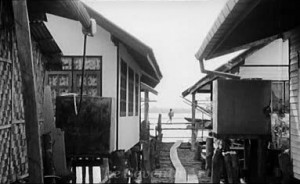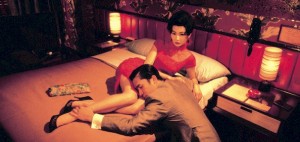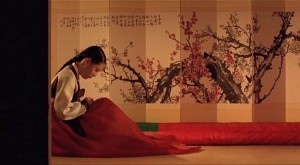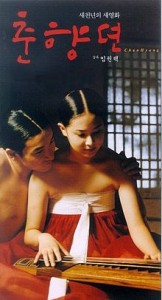From the March1, 2002 Chicago Reader.

Shot in 16-millimeter black and white with Dolby sound, then blown up to 35-millimeter, this singular experimental feature from Thailand (2000, 83 min.) is a freewheeling collaboration between filmmaker Apichatpong Weerasethakul and villagers he encountered while driving south from Bangkok. After hearing a story en route, Weerasethakul asked others to continue and/or modify it; back in Bangkok, he shot portions of the narrative with nonprofessional actors. The entire film is a heady mix of fiction and nonfiction, with fantasy and actuality rubbing shoulders at every stage, and what emerges from the collective unconscious of the participants is surprising and fascinating. Weerasethakul packages his findings in diverse and inventive ways: as an improvised outdoor musical performance, as a game played by school children, as a collaborative description in sign by two teenage deaf-mutes. I can’t think of another film remotely like it. In Thai with subtitles. Read more
From the February 15, 2001 Chicago Reader.

This brooding chamber piece (2000) about a love affair that never quite happens is so minimalist that it succumbs to the law of diminishing returns–yet for some reason it sticks in my gut. Director Wong Kar-wai, Hong Kong’s most romantic filmmaker, is known for his excesses, and in that sense the film’s spareness represents a bold departure. Claustrophobically set in adjacent flats in 1962 Hong Kong, where two young couples find themselves sharing space with other people, it focuses on a newspaper editor and a secretary at an export firm (Tony Leung and Maggie Cheung, the sexiest duo in Hong Kong cinema) who discover that their spouses are having an affair on the road. Wong, who improvises his films with the actors, endlessly repeats his musical motifs (including a melancholy violin theme and three familiar ballads sung in Spanish by Nat “King” Cole) and variations on a handful of images, rituals, and short scenes (rainstorms, cab rides, stairways, tender and tentative hand gestures), while dressing Cheung in some of the most confining (though lovely) dresses imaginable, with collars like neck braces. This isn’t among my favorite Wong Kar-wai features (in a pinch I’d pick Days of Being Wild, Chungking Express, Ashes of Time, and Happy Together), but that doesn’t mean my eyes weren’t glued to the screen. Read more
From the Chicago Reader, February 2, 2001.

Set in the late 18th century, this dazzling epic by Im Kwon-taek (Fly High Run Far) concerns the love between a prostitute’s daughter and the son of a provincial governor who marry in secret but are then driven apart. Im is Korea’s most prestigious filmmaker (with 96 features to his credit), and his stirring 2000 drama is both historically resonant and strikingly modern, remarkable for its deft and spellbinding narrative, its breathtaking color, and above all its traditional sung narration, which he periodically shows being performed with drum accompaniment before a contemporary audience. This is one of those masterpieces that would qualify as a musical if Hollywood propagandists hadn’t claimed the genre as their personal property. A must-see. 120 min. Music Box, Friday through Thursday, February 2 through 8.
 Read more
Read more




